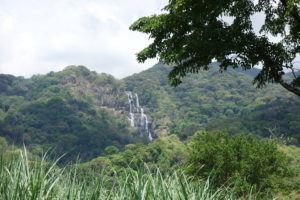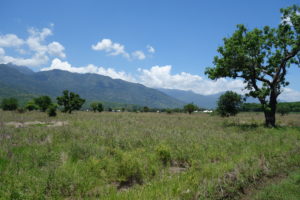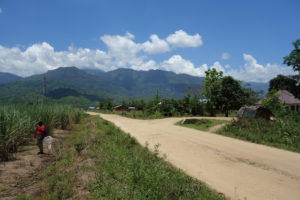Back to science again – better late than never!
What is your background? Where are you from? What do you study? What are you most interested in, scientifically?
I’m from the UK, and a PhD student at Newcastle University. I have returned to science after a bit of a gap (19 years!) – I joined the Army in the aftermath of 9/11 and then spent a few years working in sustainable finance at J.P. Morgan. I returned to study in 2018, gaining a MSc in environmental and forest management from the University of Aberdeen. My research interests are focused primarily on plant community ecology, particularly community assembly and ecosystem functioning. For my PhD I’m trying to build on my MSc research, which explored biodiversity~ecosystem functioning relationships in degraded forests in Borneo. I hope to use a functional trait approach to investigate the role of land-use on biodiversity~ecosystem multi-functioning relationships in the complex agricultural landscapes of tropical Africa, in Tanzania. In this landscape, poor rural communities and international agribusinesses rely on functioning ecosystems but there are still huge uncertainties about how land and habitat management affects the ability of the landscape to provide critical ecosystem functions and services.
My study landscape – The Udzungwa Mountains and Kilombero Valley, Tanzania. A gradient of tropical moist forest to sugarcane monocultures.
What are your goals for the upcoming course in Peru? How will you know if you’ve met these goals?
My goals for the course are to gain more experience in planning, collecting and curating trait and ecosystem function data. The last time I undertook fieldwork in the tropics was in Mexico in 1999, so I’m sure best practices have changed a bit since then. I hope that the outputs of our fieldwork will be an objective way to gauge success. Equally as important though, I hope to build friendships and a network of contacts of like-minded scientists for future work in functional trait ecology.
What are you most excited about, with respect to the upcoming course and trip?
I’m really looking forward to meeting everyone on the course and having the opportunity to discuss my interests and work with the leaders in the field of trait-based ecology. I also love South America and am really looking forward to exploring the landscapes and flora of this part of Peru. With a new baby at home, I’m perhaps most excited about the prospect of two weeks of uninterrupted sleep!
What do you anticipate people will think about climate change in Peru? Do you think most people will accept that the planet is warming, and that this is largely being caused by human activities? Or will this topic be controversial?
To be honest I’m not really sure what to expect from people’s views on climate change in Peru. I would think that where people live their lives more intimately with nature and the environment, they would be more aware of year-on-year changes in weather patterns, but I couldn’t say whether they ascribe this to human activities. I look forward to finding out.
What do you know about public perceptions of climate change in your home country? What, if anything, have you experienced related to public perceptions of climate change?
I think trying to generalise about perceptions of any subject in the UK is challenging (look at the Brexit mess for example). In my view there are two separate questions – does the public agree that climate change is real and anthropogenic in origin, and what is the best way to deal with it? There are wildly different responses to both questions, and while I wouldn’t say that views on the matter are polarised along political or socio-economic divides, there are groups that favour free-market approaches to solving the emission problem versus those that support greater state intervention through policy.



